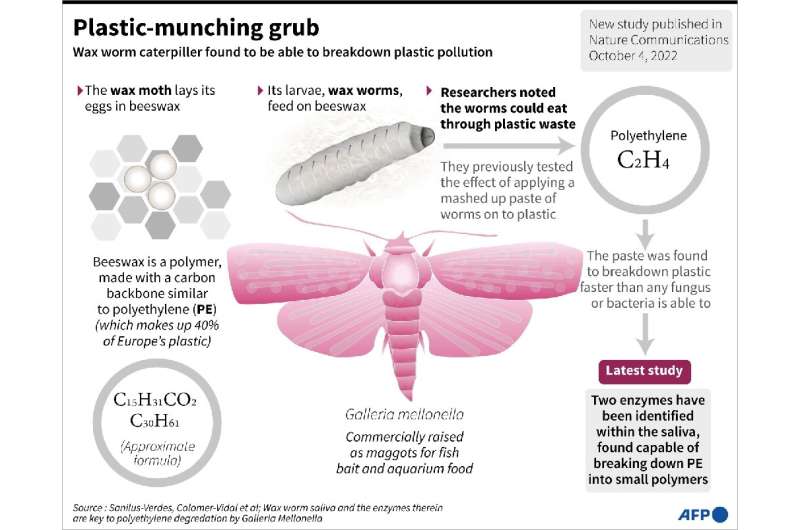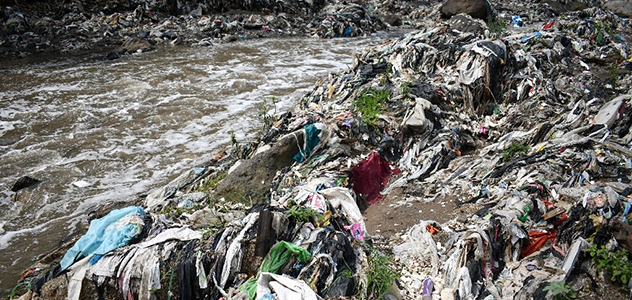||| FROM PHYS.ORG |||
Enzymes found in the saliva of wax worms can degrade one of the most common forms of plastic waste, according to research published Tuesday that could open up new ways of dealing with plastic pollution.
Humans produce some 400 million metric tons of plastic waste each year despite international drives to reduce single-use plastics and to increase recycling.
Around a third is polyethylene, a tough plastic thanks to its structure, which traditionally requires heating or radiation before it starts to break down.
There have been several studies showing that microorganisms can release enzymes that start the degradation process on polyethylene, but the process has until now taken months each time.
But those contained in the saliva the wax worm moth (Galleria mellonella) can act in only a few hours, Tuesday’s research showed.
Researcher Federica Bertocchini, an avid beekeeper, said she originally stumbled on the idea that this small caterpillar had unusual powers when storing honeycombs a few years ago.
“At the end of the season, usually beekeepers put some empty beehives in a storage room, to put them back in the field in the spring,” she told AFP.
“One year I did that, and I found my stored honeycombs plagued with wax worms. In fact, that is their habitat.”
Bertocchini cleaned the honeycombs and put the worms in a plastic bag.
When she returned a short time later she found the bag “riddled with holes”.









